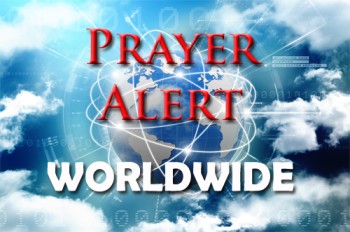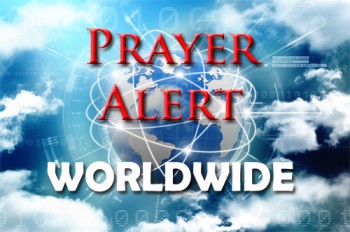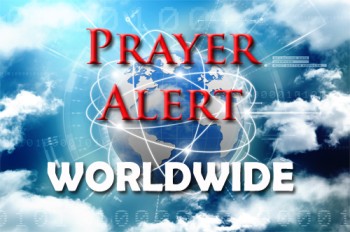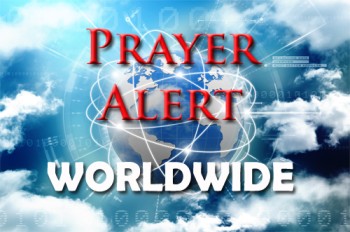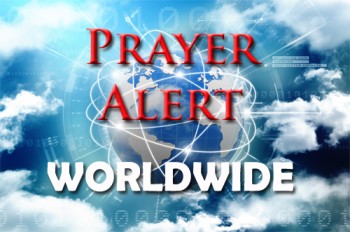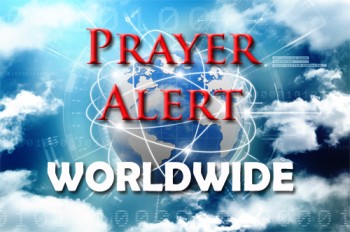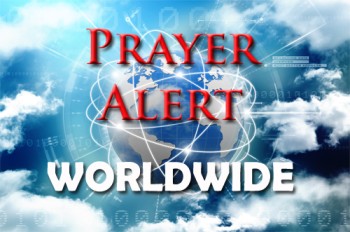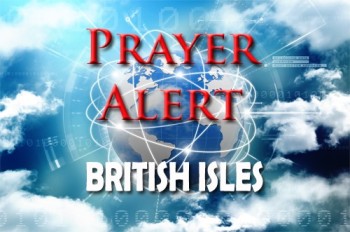
David Fletcher
David Fletcher is Prayer Alert’s Editor.
He is part of a voluntary team who research, proof-read and publish Prayer Alert each week.
If you would like to make a donation towards our running costs, please click here.
Turkey has issued 113 arrest warrants in connection with the construction of buildings that collapsed in recent earthquakes. Twelve people are in custody, with more arrests expected, but the action is seen by many as an attempt to divert overall blame for the disaster. For years, experts warned that many new buildings in Turkey were unsafe due to endemic corruption and government policies that allowed so-called amnesties for contractors who swerved building regulations, in order to encourage a construction boom - including in earthquake-prone regions. With elections looming Erdogan’s future is on the line after spending 20 years in power. He has admitted shortcomings but, during one visit to a disaster zone, he appeared to blame fate, saying, ‘Such things have always happened. It is part of destiny's plan’. Modern construction techniques should mean that buildings can withstand quakes of this magnitude, and regulations following previous Turkey disasters were supposed to ensure these protections were built in. See also
In 2019, Namibia passed legislation saying that women who, out of desperation, took the drastic step of abandoning their child, would no longer be prosecuted. Abandoned babies were dying. Safe places where an infant could be left were established, but there is still not enough awareness of the legal changes. Linda left her baby in a baby-saver box - a drawer built into a wall of a compound in Swakopmund that has a mattress and a blanket inside. There is also a letter. ‘Dearest mommy, please know that we do not judge you,’ reads the reassuring note. ‘We cannot begin to understand the circumstances that have brought you here.’ Linda knows her baby is safe. But despite the change in the law, babies continue to be abandoned in unsafe places. Between 2018 and 2022, 140 babies were abandoned - far more than those left in safe places.
Cambodia’s prime minister Hun Sen has shut down the last few independent media outlets in the country, six months before a general election. He cancelled Voice Of Democracy‘s operating licence after they published an article which he claimed slandered his son. Amnesty International said this is slamming the door on what is left of independent media and a warning to other critical voices who still dare to ask questions about the government, the prime minister, and his family. Pray for Cambodians to have safe access to truthful news. Indian tax authorities searched BBC offices after it aired a story of prime minister Narendra Modi’s role in anti-Muslim violence when he was chief minister of the state. It was only broadcast in the UK. Modi is blocking Indians from sharing ‘the Modi question’ online, calling it hostile propaganda. A spokesman for him called the BBC ‘the most corrupt organisation in the world’.
Scammers are using Turkey and Syria’s earthquakes to trick people into donating to fake causes. These scams claim to raise money for survivors, but instead they channel donations away from real charities into their own PayPal accounts. One of over a hundred recently created fundraisers for Turkey is TurkeyRelief, which joined Twitter and touts for donations. Its PayPal account has received US$900, but that includes $500 from the page’s creator, who donated to their own cause to make them appear authentic. On TikTok Live, content creators make money by receiving digital gifts. TikTok livestreams show photos with sound effects and ask for donations. One video shows a distressed child running from an explosion. Their plea for TikTok gifts is ‘Please help achieve this goal’. But the photo of the child is not from Turkey. The same image was on Twitter in 2018 with the caption ‘Stop African Genocide’.
Sometimes called ‘feathered locusts’, queleas are pests across eastern and southern Africa. A quelea eats 10g of grain daily. Not a huge amount, but flocks can number two million and collectively consume 20 tonnes of grain in 24 hours. The UN's Food and Agricultural Organisation estimates that £41m worth of crops are lost to the birds annually. The latest quelea invasion in Kisumu, amounting to ten million birds, has already decimated 300 acres of rice fields. Another 2,000 acres are still at risk during the harvest season. Worse hit is Narok county where the birds invaded wheat farms, destroying 40% of the harvest. The prolonged drought in the Horn of Africa has meant fewer seeds from wild grasses, a primary source of food for queleas. Kenyan scientists suggest this may be behind the invasion of cultivated land as the birds look for alternatives.
Antarctic glaciers may be more sensitive to sea temperature changes than was thought. A programme put sensors and an underwater robot beneath the Thwaites glacier, one of the worlds fastest-changing glaciers, the size of Britain. If it melted completely, it would raise global sea levels half a metre. The joint survey, part of the largest investigations ever undertaken anywhere on the White Continent , suggests even low amounts of melting can push a glacier further towards vanishing. Thwaites has been nicknamed Doomsday Glacier. From 6 to 20 November 2022, COP27 held high-level and side events, key negotiations, and press conferences, hosting more than a hundred heads of state, over 35,000 participants and numerous pavilions showcasing climate action around the world and across different sectors. Pray that new discoveries around earth science will be a strong wake-up call to all those participants.
The president of the International Fund for Agricultural Development has called for global leaders to invest more in rural communities and small-scale farmers, who produce one-third of the world’s food. The representatives of 177 states were asked, ‘Think how much more rural people could contribute to global food security, peace and stability if they had the resources to improve their farms and prosper, not just survive.’ Barbados’s prime minister said, ‘It is time for the world to recognise that we need to invest right now in securing food and nutrition for citizens across the planet, especially poor people, and invest in smallholder agriculture and diversified local production. Investing in food systems transformation will end the world’s hunger and nutrition crisis.’ Climate change, conflict and global inflation are creating a food crisis of epic proportions, as progress in achieving Zero Hunger moves backwards. Over one in ten people are hungry, and over 3 billion cannot afford a healthy diet.
A Christian Aid worker in Laos visited persecuted Christians in areas where no one would go. His activities challenged the authorities, and they arrested him for ‘illegal movement of religion’. In prison he feared he would die. Prisoners relieved themselves on the floor, and people died of starvation. But he kept praying and thinking about the ministry’s radio messages of encouragement. He was freed after two months. He was told to stop telling people about Christ, but his faith was irrepressible, and he boldly continued. A Laotian lady heard about Christ through the ministry’s radio broadcasts. Her husband and relatives threatened her constantly for converting, but eventually they all accepted Christ. Her home is now a house church for fifty Christians, and her husband is an elder of the church. Elsewhere police came to shut down a new house church which a pastor was dedicating. He continued the dedication despite their threats.
Catholic pro-life activist Mark Houck was raided by 15 to 20 armed federal agents banging on his door in the early hours of the morning. They treated Mark like a terrorist. This massive show of force sparked fierce criticism and questions about whether the Biden administration was using the FBI for political purposes ahead of a heated election. His appearance in court was demanded in the case of United States of America v Mark Houck. He faced up to 11 years in prison and a $350,000 fine as the government claimed a violation took place. Houck vehemently disagreed, saying they were arresting Catholic protestors like terrorists. When the ‘Not guilty’ verdict was announced his supporters in the courtroom wept tears of relief. They had taken on Goliath - the full might of the American government - and won. They later prayed outside the federal courthouse, thanking God for being with them in spirit and truth.
A study of 315 staff working for MPs found that 42% met the clinical definition of experiencing psychological distress, three times higher than in the general population. They face similar levels of psychological distress as frontline NHS workers, amid a ‘toxic’ workload and fears for their safety. MPs’ caseworkers said there was a ‘worrying upturn’ in the number of actively suicidal people seeking help in the past year. Two-thirds described their work as emotionally draining and one in ten said it was ‘harrowing’. It was not unusual for them to open horrifying mail detailing child abuse or containing pictures of maimed or dead children.

